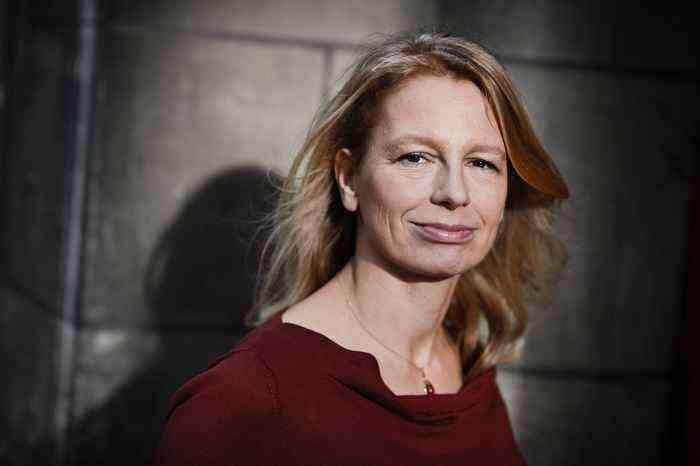Fourth AI University Professor appointed
3 September 2019
Recent developments in the area of information technology, AI and robotics have compounded the challenges law and public policy face. They give rise to multiple legal problems such as issues related to autonomous systems and automated decision making. Additionally, there is a wider range of issues with regard to the impact new technologies have on society as well as our existing rules, public values and fundamental rights, such as those involving ownership, privacy, citizenship, and democracy.

As a professor of information law, Natali Helberger studies the legal, ethical and public policy related challenges associated with using algorithms and AI in media, political campaigning, commerce and the healthcare sector, and the implications this has for users and society. As a University Professor, she will continue building on this research and within the Law School and the University of Amsterdam, she will initiate and conduct research on the legal implications of AI and automated decision making. She will also focus her efforts on strengthening the aspects of technology and AI in the Amsterdam Law School’s programmes and bringing legal expertise into interdisciplinary co-operations within the UvA and beyond. Rector Magnificus Karen Maex is pleased that Natali Helberger’s appointment now completes the team of AI University Professors: ‘The legal and ethical implications of artificial intelligence are already incorporated in Helberger’s research. With her extensive national and international network, she is the ideal link between scholars at the UvA and scholars at other institutions’.
About Natali Helberger
Natali Helberger (1970) is professor of Information Law at the UvA and a member of the board of directors of the UvA’s Institute for Information Law. Since 2019, she is one of the leaders of the ‘Human (e) AI’ Research Priority Area at the UvA. She is also founder and Principal Investigator of ‘Information and Communication in the DataSociety’- an interdisciplinary research initiative into the way AI and algorithms affect the role, impact and regulation of data-driven communication and information platforms (together with Prof Claes de Vreese, Amsterdam School of Communications Research).
Helberger received an ERC Starting Grant in 2015 for her research on how data analytics is used in news rooms. In the VSNU’s research agenda ‘the Digital Society’, Helberger leads the Citizenship and Democracy programme and she is a Steering Committee Member of the National Research Agenda’s VW Data Kickstarter programme. Helberger is a member of the Royal Netherlands Academy of Arts and Sciences (KNAW) and a member of the Royal Holland Society for the Sciences (KHMW). In addition, Helberger is member of the Council of Europe Expert Committee on AI and Human Rights, the Scientific Advisory Board of the Reuters Institute and the Florence Institute for Regulation, and member of the Steering Committee of the Swiss National Research Programme on Digital Transformation.
Knowledge transfer and valorisation play an important role in her work. For her research, Helberger works together with leading media companies, NGOs, consumer organisations, and has been a consultant for a variety of organisations such as the European Commission, the European Parliament, the Council of Europe, OECD, UNESCO and national governments and regulatory authorities. The Artificial Intelligence Magazine Becoming Human has listed Helberger as one of the “100 brilliant women in AI ethics to follow ”.
University Professors at the UvA
With the appointment of Natali Helberger, there are now eight University Professors at the UvA: Robbert Dijkgraaf, Alexander Rinnooy Kan, Patti Valkenburg, Frank Vandenbroucke and the recently appointed AI University Professors Maarten de Rijke, Ivana Išgum and Tobias Blanke. By establishing the four new chairs, AI and Information Retrieval, Humanities and AI, AI and Medical Imaging, and Law and Technology with a special emphasis on AI, the UvA aims to give an extra boost to its AI research and teaching in the coming five years. In addition to their university-wide assignment, the new University Professors will also have a faculty assignment. They will be expected to give an impetus to academic developments that transcend the traditional disciplines and thereby make an important contribution to the profiling of the university.